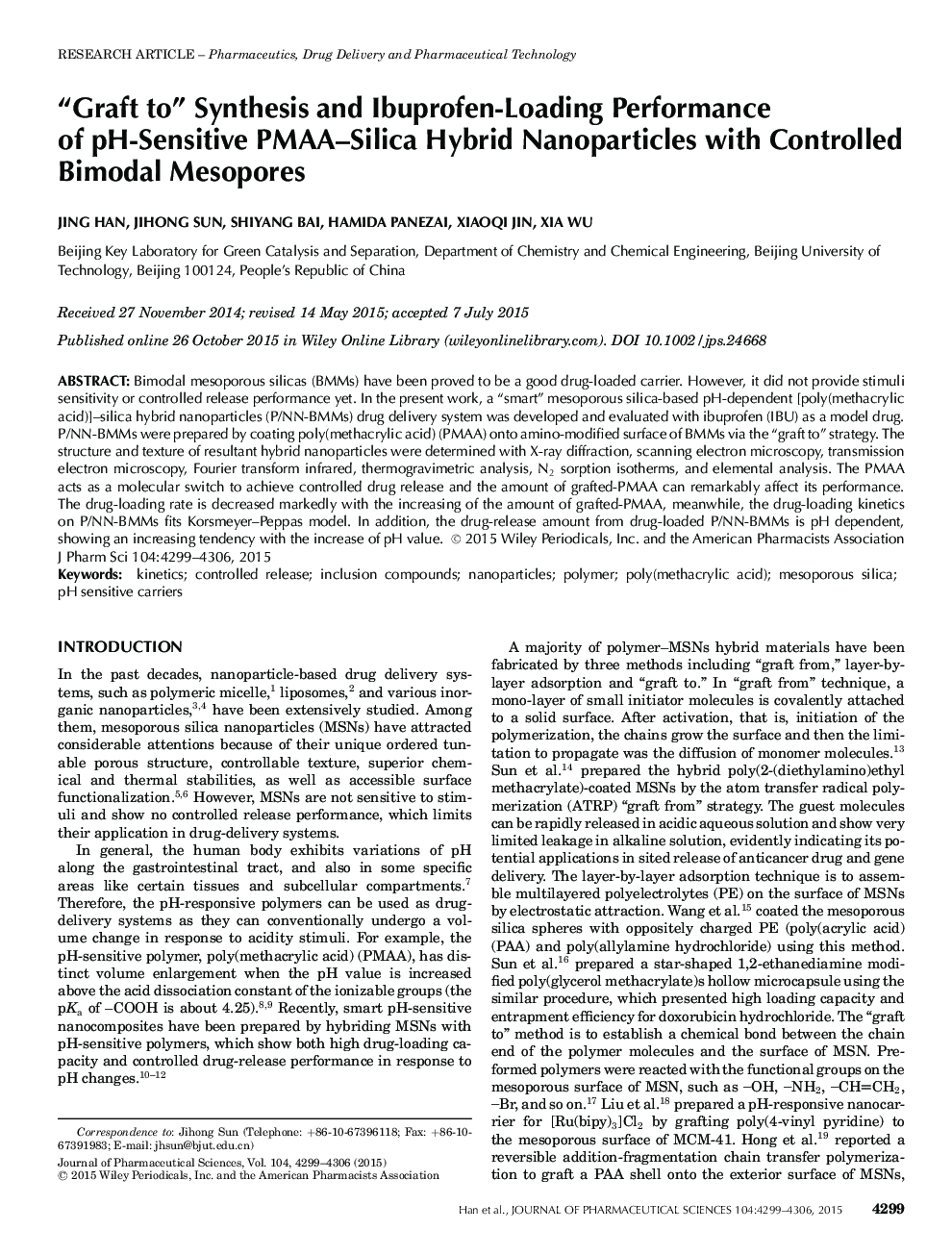| Article ID | Journal | Published Year | Pages | File Type |
|---|---|---|---|---|
| 10161955 | Journal of Pharmaceutical Sciences | 2015 | 8 Pages |
Abstract
Bimodal mesoporous silicas (BMMs) have been proved to be a good drug-loaded carrier. However, it did not provide stimuli sensitivity or controlled release performance yet. In the present work, a “smart” mesoporous silica-based pH-dependent [poly(methacrylic acid)]-silica hybrid nanoparticles (P/NN-BMMs) drug delivery system was developed and evaluated with ibuprofen (IBU) as a model drug. P/NN-BMMs were prepared by coating poly(methacrylic acid) (PMAA) onto amino-modified surface of BMMs via the “graft to” strategy. The structure and texture of resultant hybrid nanoparticles were determined with X-ray diffraction, scanning electron microscopy, transmission electron microscopy, Fourier transform infrared, thermogravimetric analysis, N2 sorption isotherms, and elemental analysis. The PMAA acts as a molecular switch to achieve controlled drug release and the amount of grafted-PMAA can remarkably affect its performance. The drug-loading rate is decreased markedly with the increasing of the amount of grafted-PMAA, meanwhile, the drug-loading kinetics on P/NN-BMMs fits Korsmeyer-Peppas model. In addition, the drug-release amount from drug-loaded P/NN-BMMs is pH dependent, showing an increasing tendency with the increase of pH value. © 2015 Wiley Periodicals, Inc. and the American Pharmacists Association.
Keywords
Related Topics
Health Sciences
Pharmacology, Toxicology and Pharmaceutical Science
Drug Discovery
Authors
Jing Han, Jihong Sun, Shiyang Bai, Hamida Panezai, Xiaoqi Jin, Xia Wu,
